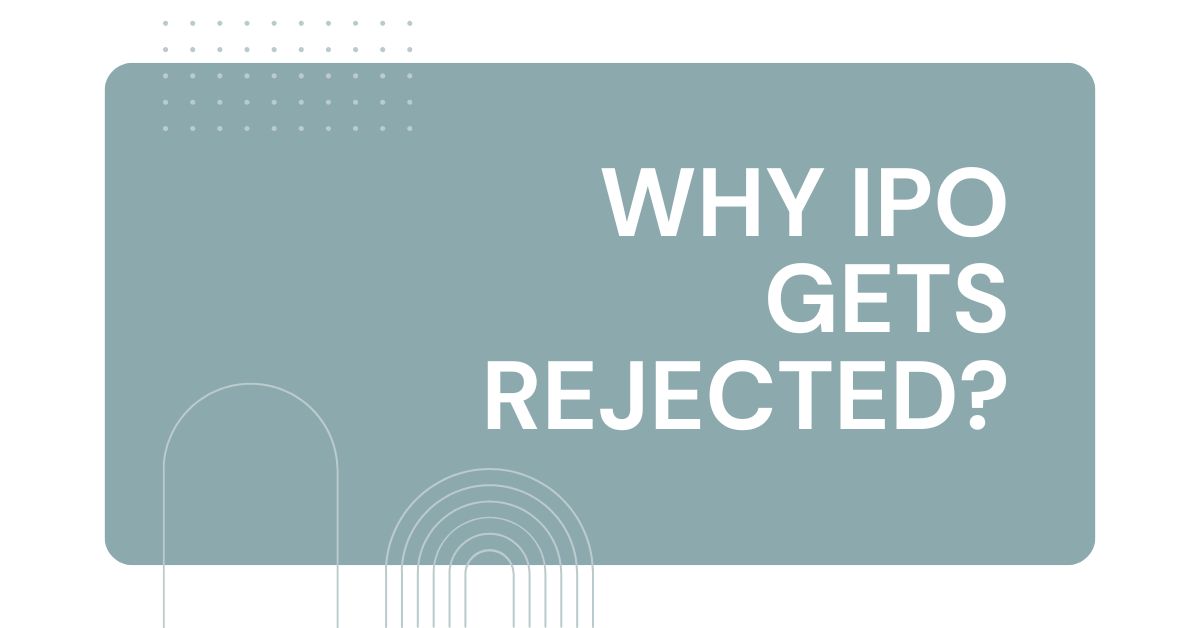It is entirely reasonable to experience disappointment when one is unsuccessful in obtaining an IPO allocation. In the end, you have devised strategies to optimize your IPO investment and have come to the realization that the share allocation is not present.
You were recently informed of the news when you accessed the registrar’s website to check your online allotment status. Is this a typical occurrence in an IPO investment, or are there additional explanations for the non-allotment of shares? The response is essentially a combination of the two. It is common; however, there are measures you can implement to prevent non-allotment.
Merchant bankers typically finalize the premise of allotment in consultation with the stock exchanges within three days of the IPO’s closure, which is a critical component of the IPO process. The IPO allotment procedure is a critical component of the IPO process and is accessible for online viewing once it is finalized.
In this article, we will examine the various potential causes of non-allotment of shares. Oversubscription is not the sole cause of all rejections. In this section, we look at the critical aspect of IPO shares, including the circumstances that lead to their non-allotment and the manner in which it occurs.
Why Ipo Gets Rejected?
An Initial Public Offering (IPO) may be rejected for a variety of reasons, both technical and fundamental. Here are a few common causes:
Technical Reasons
- Incorrect Application Details: It includes incorrect application details such as PAN number, bank account, and other information.
- Insufficient Funds: If you do not have sufficient funds in your account to meet the bid amount, your application will be refused.
- Multiple Applications: Using the same PAN for repeated applications, particularly in the retail sector, may result in rejection.
- Bid price outside of the price band: If your offer price falls below the minimum or exceeds the maximum price specified for the IPO, it will be rejected.
- Technical Glitches: Technical faults with the bidding site or your bank’s system might occasionally result in rejections.
Fundamental Reasons
- Weak firm Fundamentals: If the firm launching the IPO has poor financial performance, unfavorable market sentiment, or other issues, investors may be unwilling to buy, resulting in low demand and possible rejection.
- Market Conditions: An unstable or negative market might reduce investors’ willingness to take risks, lowering demand for new IPOs.
- Regulatory Issues: Regulatory barriers or concerns might delay or prevent an IPO from taking place.
- Overvalue: If the company’s valuation is deemed excessively high, investors may be hesitant to participate in the IPO.
It is crucial to note that, while these are common reasons, the particular criteria that lead to an IPO rejection may differ based on the circumstances.
Most Common Reason Why Ipo Gets Rejected
The most common reason for an IPO application rejection from an investor’s standpoint is likely a lack of funds in the bank account.
When you apply for an IPO, you must have sufficient funds in your account to cover the bid amount. If there is not enough money, your application will be instantly rejected. This is a regular method to guarantee that investors have sufficient financial resources to commit to their bids.
Other reasons for rejection may include:
- Incorrect application details: Errors in the PAN number, bank account information, or other information can result in rejection.
- Bid price outside the price range: If your offer price falls below the minimum or exceeds the maximum price specified for the IPO, it will be rejected.
- Technical glitches: Technical faults with the bidding site or your bank’s system can result in rejections.
Before filing your IPO application, make sure you double-check all of the facts and have enough capital available.
How Can I Increase My Chances of Getting an IPO Allotment?
Here are several techniques to increase your chances of receiving an IPO allotment:
1. Bid at or above the issue price
- While there’s no guarantee, bidding at or above the issue price can increase your chances of allotment, especially if the IPO is oversubscribed.
2. Bid for multiple lots
- Bidding for multiple lots can increase your overall application size and potentially improve your chances of allotment. However, be mindful of your budget.
3. Apply through multiple brokers
- By distributing your bids across various platforms, applying through multiple brokers can increase your chances of receiving an allocation. However, ensure you have the necessary funds to cover all your bids.
4. Participate in retail quotas
- Many IPOs have a reserved quota for retail investors. Ensure you meet the eligibility criteria and apply within the retail quota to increase your chances.
5. Apply for smaller IPOs
- Smaller IPOs with fewer subscribers may have higher allotment chances. Research and identify such opportunities.
6. Use online bidding platforms:
- Online bidding platforms can often provide easier application processes and may have additional features to help you increase your chances.
7. Avoid overbidding
- While bidding higher might seem like a good strategy, overbidding can be risky. If the IPO is not oversubscribed, you might end up paying a premium for the shares.
8. Research the company
- Understanding the company’s fundamentals, financials, and market prospects can help you make informed decisions and increase your confidence in the IPO.
9. Be patient
- Allotment is not guaranteed. Be patient and continue applying for IPOs. Over time, you may increase your chances of securing allotments.
IPO allotment is not always predictable, and there’s no foolproof method to guarantee success. However, by following these strategies and staying informed about the market, you can improve your chances of securing IPO allotments.
Is There Any Trick to Apply IPO?
While there is no sure “trick” to obtaining IPO allotments, understanding the process and abiding by best practices can considerably increase your chances.

